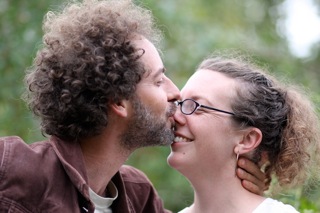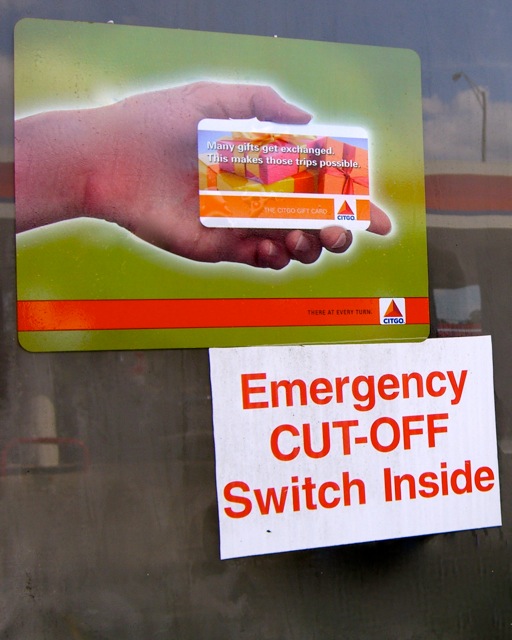sharing the journey of Relationship, Embodiment, and Awakened Living
sharing the journey of Relationship, Embodiment, and Awakened Living
I not only want you, but I need you
And the need is so strong
It's almost like that of a junkie
Brighter Side of Darkness, "Love Jones"
Those of us who are into organic food and natural medicine know the difference between plants and drugs. Or do we? What about a healthy or unhealthy relationship?
I lived and worked with Wise Woman herbalists for many years. One of the most important things I learned is the difference between a “tonic” and a “stimulant.” Knowing this difference can help you decide whether your relationships — be they with food, lovers, or other activities — are healthy or unhealthy. With the simple test I learned, the answer is easy.
Life consists of experiences. Food, exercise, entertainment, social life: these are all things we consume, do, or otherwise interact with. Tonics are experiences that tonify, i.e., strengthen you. Stimulants, on the other hand, when used regularly, ultimately weaken you. Drugs are powerful stimulants, and many plants in our lives — and people — are drugs to us. Our relationships with them are not growthful.
Few people know the difference between tonics and stimulants, and that could be part of why so few relationships work out. It may also be why rampant consumerism is destroying the planet.
 One reason for the confusion between tonics and stimulants is that what makes something a tonic or a stimulant has less to do with what it looks like than how we relate to it. Anything we are attached, that is, addicted to, is a stimulant or even a drug for us, regardless of how refined or “natural” it is. It could be a hot shower in the morning, yoga in the evening, or a kiss from our sweetheart in the afternoon.
One reason for the confusion between tonics and stimulants is that what makes something a tonic or a stimulant has less to do with what it looks like than how we relate to it. Anything we are attached, that is, addicted to, is a stimulant or even a drug for us, regardless of how refined or “natural” it is. It could be a hot shower in the morning, yoga in the evening, or a kiss from our sweetheart in the afternoon.
Even if we’re addicted to something, however, it doesn’t mean it’s “bad.” Nothing is always “good” or “bad.” Whether it’s helpful or harmful depends on the situation. Stimulants including drugs can be entirely appropriate in certain contexts. There are situations in which smoking cigarettes is the best thing a person can do. It might be the only thing that keeps them from committing physical violence to others or to themselves.
There is a time and place for everything. The more powerful the stimulant, however, the more careful we need to be about resorting to it. Anything powerful, i.e., fast-acting, is also dangerous.
This brings us to the other reason for the confusion between tonics and stimulants. And that is that the difference between them, like the difference between stimulants and drugs, is a matter of degree. Tonics stimulate, but they do it slowly, and that makes all the difference. Here’s why:
The term “stimulants” is often short for “stimulants and sedatives.” Stimulants bring you up or down, making you more energetic or more relaxed. They can also elicit other immediate reactions such as bringing on a period or breaking a fever. Like tonics, they promote change. The key is that they do it quickly (think “fast relief’). The catch is that they do so at a price.
Tonics also stimulate or sedate, but they do so in a gradual way. This gradual pace is more healthful, i.e., it strengthens rather than weakens you, because it stretches you more than temporarily. It broadens your comfort zone. We all have comfort zones, and anything on either side of that zone feels uncomfortable. To calm down when you’re used to being on high alert, for example, stretches your comfort zone. Letting down your guard can be scary!
The reason fast is not necessarily better is that making yourself do things that you are not prepared to do can backfire. If we are stretched too abruptly or severely, we can either be injured — either physically or emotionally (there's really no difference) — or we will tend to shrink back defensively in order to avoid injury. Like a rubber band, we will either snap — or snap back.
Another word for wise woman (or man) is witch. The word “witch” comes from wicca, which means “to bend.” The word wisdom, on the other hand, comes from vision, which of course means “to see.” To be wise, then, is to see how to bend without breaking. That is magic. As in the serenity prayer, it means knowing the difference between what you can change and what you can’t. That is wisdom.
If you push yourself or someone else too hard, whether it be at work, at the gym, at a personal growth workshop, or in an intimate relationship, the stretch becomes a strain, and that’s asking for trouble. After running on coffee for weeks, we may get sick. After a major breakthrough in a relationship, we may cause a fight. After getting a promotion, we might have an “accident.” We do all sorts of things, mostly unconsciously, just to get back to “normal,” which is whatever we’re accustomed to, a.k.a., our comfort zone.
 Another way to look at it is that stimulants (which again, includes sedatives) can put a strain on our resources. Like most drugs, they are fast-acting. But like the jolt we get from sugar, these are “empty calories”: rather than add to your reserves, stimulants draw from them. They are like living on a credit card: useful in a pinch, but they don't create money, and if you're not careful, pretty soon you are running on empty, living beyond your means. Sooner or later, you will have to pay up — with interest.
Another way to look at it is that stimulants (which again, includes sedatives) can put a strain on our resources. Like most drugs, they are fast-acting. But like the jolt we get from sugar, these are “empty calories”: rather than add to your reserves, stimulants draw from them. They are like living on a credit card: useful in a pinch, but they don't create money, and if you're not careful, pretty soon you are running on empty, living beyond your means. Sooner or later, you will have to pay up — with interest.
That payback time, the "coming down" crash or reality check, is called “withdrawal.” And the test of whether something is a tonic or a stimulant is whether you go into withdrawal when you no longer have or use it. When your boyfriend or girlfriend leaves you — for the night, the weekend, or forever — do you miss them so badly that you can’t function? If so, then to that extent, you are in withdrawal. And that means they were a stimulant to you, a drug. And stimulants, when used more than sparingly, ultimately debilitate.
How many of us say or think, “I can’t live without you,” whether "you" is our lover or our cup of coffee in the morning? If you get uncomfortable without something, then your comfort zone has not expanded. At best, it has merely shifted; at worst, it has narrowed. Either way, you have come to depend on that person, activity, or food. It has not empowered you; you have given your power to it. In religious terms, this is called idolatry.
The difference between a tonic and a stimulant, then, is the difference between a preference and a craving. No one says “I’ll just die without my nettle infusion.” You will always choose a tonic because you know it’s healthy or it just feels that way. The important thing is that it’s a choice. When something is a drug for you, whether it’s ice cream, thrills, sex, or drama in your relationship, it means it has become an addiction. You don’t choose to use or do it; you feel compelled to do so.
If we can’t live without it, does that mean that food is a drug? Yes and no. We need food in general, but if you find yourself craving something in particular, it could mean you have a food deficiency. You have a need that is not being met, and you might not be choosing the best strategy to meet it.
The distinction between “needs” and “strategies” comes from Nonviolent Communication, or NVC. NVC is not just a way of talking but an approach to life in general: one that empowers, not debilitates.
NVC teaches that we all need love. We don’t, however, need our current partners to love us. Love is a need. Getting it from a particular person is a strategy: just one means to that end. When we’re addicted to a particular strategy, then that strategy has become a drug.
If you take the strategy away and it hurts, it means the strategy was a drug. But it also means the need is still there. It’s still there because the strategy did not feed it. You used that strategy to stimulate, not to strengthen you. It's tonics that strengthen, that broaden your comfort zone. Make your relationships with everything your tonics. Make sure they are nourishing: not weakening but strengthening you, your partner, and the world.
When we are strong, we still need love; we still need food. But we don’t drop dead without one or the other. If we can’t find it in one place, we have the strength to seek it somewhere else. That resiliency is the promise of wisdom. And that wisdom is what will save the world.
For more on how we stay in our comfort zones, see The Big Leap by Gay Hendricks. For how to broaden them, we recommend the work of Maureen McCarthy and Zelle Nelson.